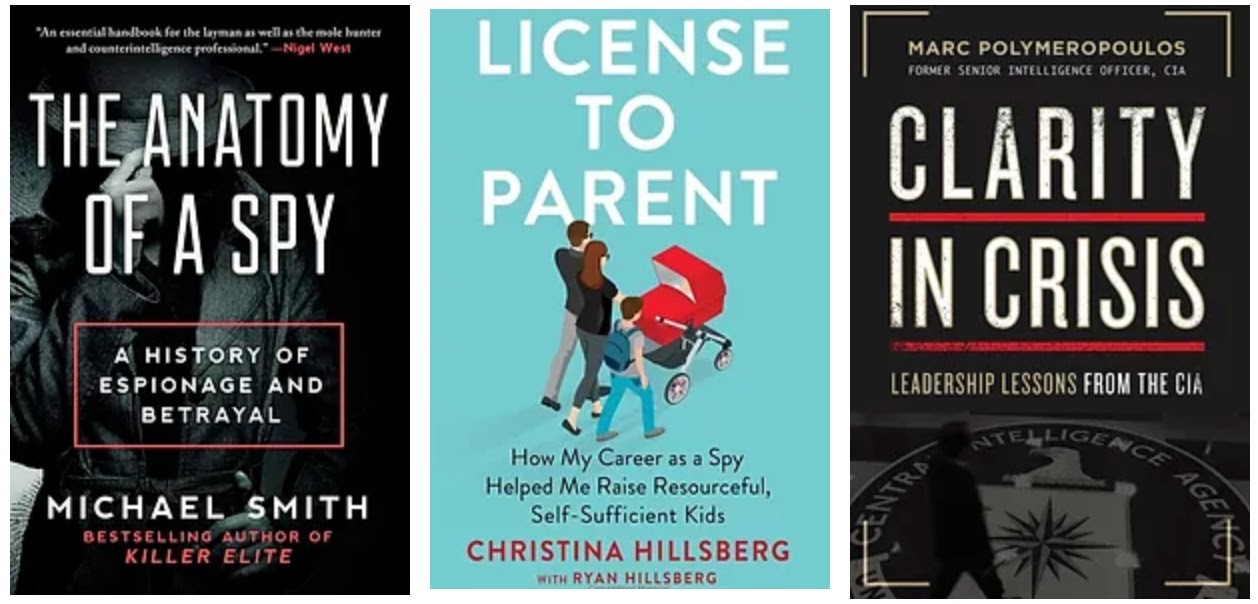Espionage, at its core, is a psychological game. It’s about understanding motivations, manipulating behaviors, and exploiting vulnerabilities. To truly grasp the world of espionage, one must delve into the psychology that drives spies, their handlers, and their targets. Here’s a guide exploring that fascinating intersection.
How Spies Think: Lessons for Everyone
David Omand’s How Spies Think (2020), written by the former head of Britain’s GCHQ, analyzes the methodologies intelligence agents use to make complex judgments. The book offers valuable lessons on situational awareness, avoiding manipulation, and understanding subversion. These are not just tools for spies, but valuable skills applicable to decision-making in any field. By understanding how spies analyze situations, we can improve our own critical thinking.
The Double Life: Risk-takers and Spy Makers
Risk-taker, Spy Maker: Tales of a CIA Case Officer (2020) by Barry Broman provides insight into the lives of CIA case officers. Broman, a Vietnam War veteran, shares his experiences recruiting spies, evading danger, and leading international paramilitary projects. The book examines how CIA operatives manage their clandestine lives, highlighting the psychological toll and the need for compartmentalization. Understanding this duality is key to understanding the psychological fortitude required in espionage.
The Anatomy of a Spy: Motivations and Effectiveness
Michael Smith’s The Anatomy of a Spy (2019) explores the core question: why do people risk their lives for intelligence? Through interviews with intelligence officers and spies from around the world, Smith creates a multifaceted portrait of espionage. The book dissects the motivations, personalities, and skills that make spies effective. It goes beyond the glamorized image to reveal the human element.
Parenting Like a Spy: Life Skills for Children
Christina and Ryan Hillsberg, former CIA officers, apply their expertise to child-rearing in License to Parent (2021). The book offers practical guidance on teaching children conflict resolution, communication, and other crucial life skills. By drawing parallels between espionage tactics and parenting strategies, the Hillsbergs offer a unique perspective on raising resourceful and self-sufficient children.
Leadership Under Pressure: Lessons from the CIA
Clarity in Crisis: Leadership Lessons from the CIA (2021) by Marc Polymeropoulos distills leadership lessons from the high-stakes world of espionage. Polymeropoulos, a decorated CIA operations officer, shares the principles he learned while making critical decisions under immense pressure. The book provides valuable insights into crisis management, decision-making, and leadership, highlighting the psychological resilience necessary to navigate challenging situations.
The Psychology of Deception: Detecting Lies
In You’re Lying! (2015), Lena Sisco, a former Department of Defense interrogator, shares her expertise in detecting deception. Sisco, trained in interrogation and cross-cultural communication, provides readers with practical techniques to identify lies in various situations. Understanding the psychology of deception is a crucial aspect of espionage, applicable to both intelligence gathering and counterintelligence.
Counterterrorism and Analysis
Duane R. Clarridge, founder of the CIA’s counterterrorism center, recounts his battle against non-state terrorist groups in A Spy for All Seasons (1997). He offers insights into the subtle analysis employed by counterterrorism professionals, focusing on the psychology of terrorist groups and the strategies used to defeat them.
Enhancing Mental Acuity: Sharper Minds for Spies
Boost Your IQ: Tips and Techniques for a Sharper Mind (2018) by Ron Bracey provides exercises and techniques for boosting one’s IQ and enhancing reasoning powers. Spies require the ability to quickly analyze information and adapt to changing situations. This book offers practical tools to sharpen the mind and improve cognitive function, essential for success in the field.
The Power of Persuasion: Influencing Others
Jason Hanson’s Agent of Influence (2019) explores the art of persuasion, a critical skill for spies. The book offers techniques for building rapport, understanding motivations, and influencing behavior. Effective communication and persuasion are essential for recruiting assets, gathering intelligence, and achieving strategic objectives.
The Truth About Lies: Deception and Self-Deception
The Truth About Lies (2021) by Aja Raden examines the complex nature of deception, arguing that lying can be a healthy psychological mechanism. The book explores the reasons why people lie, the situations where lying is beneficial, and the psychology of being deceived. Understanding the complexities of deception is vital for both spies and those seeking to understand them.
Organizational Excellence: Lessons from the FBI
Frank Figliuzzi, former head of counterintelligence for the FBI, reveals the Bureau’s playbook for achieving individual and organizational excellence in The FBI Way (2021). The book offers insights into leadership, teamwork, and decision-making, drawn from the FBI’s field-tested strategies.
Decoding Body Language: Nonverbal Communication
Joe Navarro, a former FBI agent and body language expert, provides a comprehensive guide to nonverbal communication in The Dictionary of Body Language (2018). The book reveals the hidden meanings behind conscious and subconscious movements, from facial expressions to posture.
Real-Life Espionage: Paranoia and Psychological Manipulation
Eric O’Neill’s Gray Day (2019) tells the true story of his mission to bring down Robert Hanssen, a senior FBI counterintelligence officer who was a KGB double agent. The book highlights the psychological manipulation and paranoia involved in espionage, offering a gripping account of a real-life spy drama.
In conclusion, the psychology of espionage is a complex and multifaceted field. By studying the motivations, behaviors, and thought processes of spies and their adversaries, we can gain a deeper understanding of this fascinating world. These books offer valuable insights into the spy mindset, providing a framework for analyzing espionage from a psychological perspective.
